
The San Antonio Breast Cancer Symposium fosters collaboration among experts, enhancing research and treatment strategies for breast cancer's complex landscape.

The San Antonio Breast Cancer Symposium fosters collaboration among experts, enhancing research and treatment strategies for breast cancer's complex landscape.

Experts at SABCS highlighted the aggressive nature of breast cancer in young women, emphasizing tailored management and support strategies.

The meeting included new evidence and expert insights on hormone therapy, AI, and the expanding role of GLP-1 therapies in cardiovascular care.

A novel phase 1 trial explores the safety and efficacy of targeted radiotherapy for leptomeningeal metastases in breast cancer patients.

Phase 1 data presented by Andrew Brenner, MD, PhD, showed RNL-186 improved survival, reduced symptoms, and demonstrated strong safety in patients with leptomeningeal metastases.

Linvoseltamab shows promise as a first-line therapy for multiple myeloma, offering high response rates and a simplified treatment approach.

Eunice Wang, MD, highlights breakthroughs in menin inhibitors for acute leukemias, showcasing promising combination therapies and addressing treatment challenges at ASH 2025.

New research reveals teclistamab and daratumumab significantly enhance progression-free survival in multiple myeloma, reshaping treatment standards.

From immunotherapy breakthroughs to early-stage scientific advances shaping the next generation of cancer care, these were the top oncology stories from AACR.
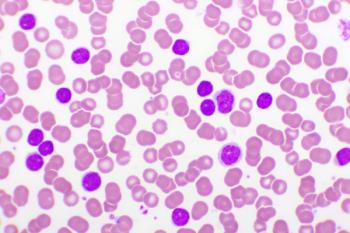
Pirtobrutinib significantly improved progression-free survival in treatment-naïve CLL compared with bendamustine plus rituximab.

Eric H. Yang, MD, warns that lifetime cardiovascular risk for patients with breast cancer may exceed the general population as life expectancies grow, emphasizing the need for early intervention.
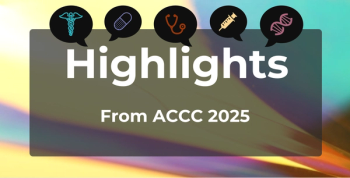
Artificial intelligence and lung cancer highlighted the top conference coverage from the Association of Cancer Care Centers Annual Meeting in Washington, DC.

Debra Patt, MD, PhD, MBA, MPH, spoke at SABCS about the importance of patient-investigator collaboration to enhance the clinical trial process.

Genetic risk models and variant tools help to guide intensive interventions for high-risk carriers and personalized management for others.

Adding ianalumab to eltrombopag significantly prolongs time to treatment failure, boosts 6-month response rates, and improves fatigue for adults with primary ITP.

Camizestrant significantly improves progression-free survival in advanced breast cancer patients with ESR1 mutations.

Innovative smart pill bottles significantly enhance adherence to oral adjuvant endocrine therapy in early-stage breast cancer, noted Steven Manobianco, MD.

New findings from 2 abstracts presented at SABCS reveal T-DXd regimens enhance outcomes and tolerability for patients with high-risk HER2-positive early breast cancer.

Early fertility counseling is necessary for young patients before treatment limits options, said Yara Abdou, MD, of the University of North Carolina at Chapel Hill.
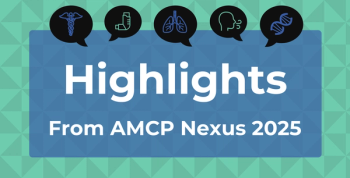
AMCP Nexus 2025 explored innovative health care policies, oncology advancements, and the impact of new regulations on patient access and treatment outcomes.

Treatment-induced menopause can occur with severe symptoms, making personalized management and careful therapy selection essential.

Research highlights the complex cognitive difficulties faced by breast cancer survivors, emphasizing the need for multifaceted treatment approaches, says Xiaotong Li, PhD, MS.
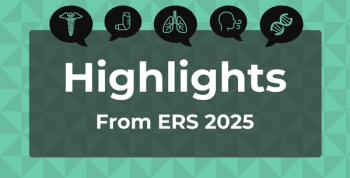
Discover key insights from the ERS Congress 2025, highlighting advancements in pulmonary fibrosis treatment and the promising role of nerandomilast.

Experts at SABCS 2025 said alcohol consumption raises breast cancer risk, emphasizing the need for public education and clinical intervention.
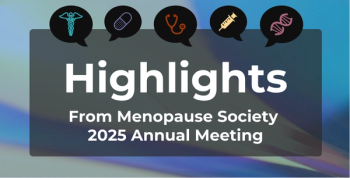
In case you missed it: the top 5 highlights from the Menopause Society's 2025 Annual Meeting.

At SABCS 2025, Amrita Basu, PhD, underscores that effective AI use for breast cancer care depends on human oversight.

Research at the San Antonio Breast Cancer Conference highlights T-DXd's superior efficacy and safety in HER2+ metastatic breast cancer, especially among diverse populations.

Innovative deep proteomic profiling reveals promising results from a blood-based test for early breast cancer, showcasing high sensitivity and specificity, explains Justin Drake, PhD.

Joanna Rhodes, MD, MSCE, highlights significant racial and ethnic disparities that persist in access to preferred CLL treatments.

Photopsia associated with camizestrant was mostly mild, nondisabling, and reversible, according to Adam Brufsky, MD, PhD, at SABCS 2025.

259 Prospect Plains Rd, Bldg H
Cranbury, NJ 08512
© 2025 MJH Life Sciences®
All rights reserved.
